Six Hyundai wheel loaders are making quick work of unloading sugar cane for compositing and baling
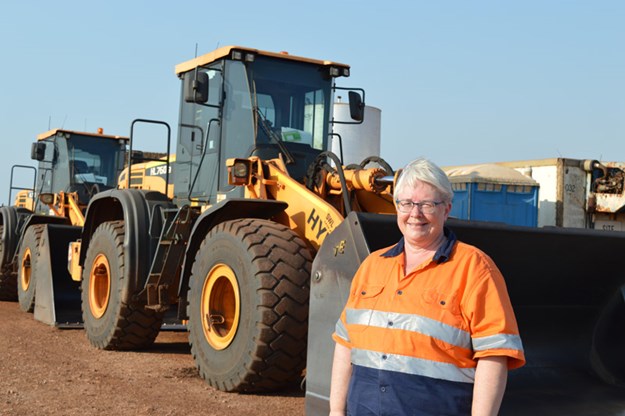 |
|
Oreco Group Childers office manager, Kerry Durie, on site
|
The sugar cane harvest in the Bundaberg region of Queensland starts around June and is generally ongoing until about December of each year. The leafy tops of the plant are what the team at Australia’s largest sugar cane mulch manufacturer Oreco Group Childers use to create its popular garden mulch.
Ideal for vegetable gardens, it’s also useful for general garden use as “a good all-rounder”.
The organisation has been busy supplying the likes of Bunnings and nurseries nationwide for many years with its mulch, which is packaged at its Isis Central premises near Childers in the Bundaberg Region of Queensland. The site sits just a bit further down the road from the historic Isis Central Sugar Mill, which has been operating since 1897.
In addition to the sugar cane mulch they also produce soil mixes. One is a potting mix, another is a soil improver. Childers also produce loosened pea straw mulch and a few different types of bark mulch.
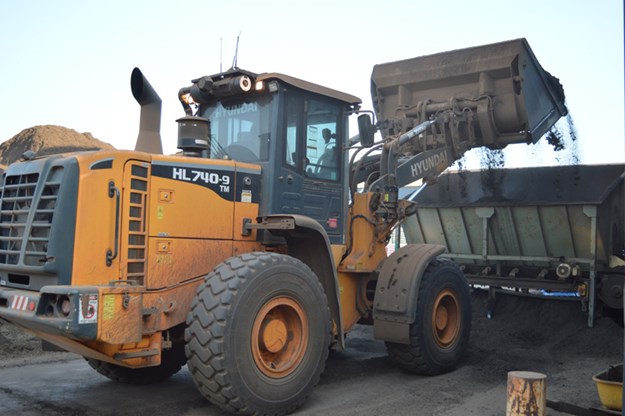 |
|
The Hyundai HL740-9 loading the hopper
|
Sugar cane needs 12 months to grow to a full height of two to four metres tall and is normally ready to chop around mid-year, so things really start to get busy for the team around June.
Oreco Group Childers office manager, Kerry Durie, says the business at Childers has doubled its number of employees since she came on board back in 2013.
“We are harvesting the sugar cane that we use for our sugar cane mulch product ourselves for the first time this year, but a lot of the local sugar cane growers still supply us too,” she explains, as she takes EEM through the machinery they use to harvest and process the sugar cane. The composting facility itself has an annual capacity of over 100,000 cubic meters of compost, which will eventually be packed into a mixture of loose-fill bags and compressed bales at Childers’ automated packing facility.
A true family business, Kerry has two sons and daughter who all work within the business and are gaining valuable skills and training with each year that passes.
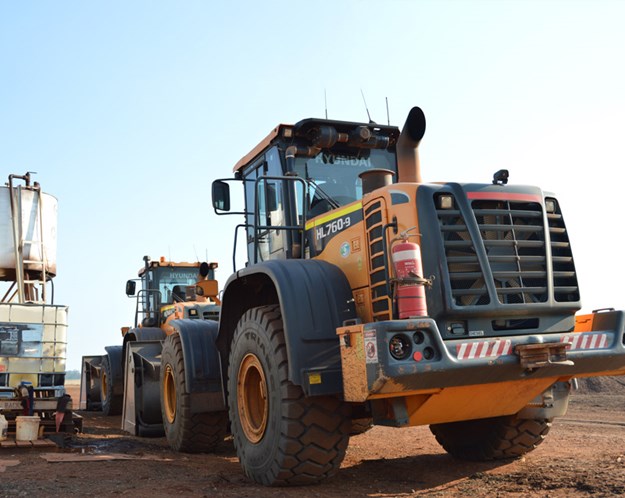 |
|
Two Hyundai HL760-9 loaders at the compositing facility
|
The processing process
Durie says that it’s quite a big job to get the product from its raw form to being ready for distribution to home improvement stores and nurseries nationwide, especially the sugar cane mulch that is Childers’ core business.
“The sugar mills go in and harvest the cane and we wait for about seven to 10 days for the leaf matter to dry out. Then we come in and rake, bale and transport it to the factory here,” she explains.
“Once it’s here in the factory and goes through a process of grinding to make it a more usable size, we bale it into compressed bales.”
The sugar cane tops go through quite a rigorous treatment process between arriving at the factory in bales and being ready for packaging and distribution. The grinder first breaks it down before conveyor belts with different screen sizes select the right size pieces.
“It goes through dust extraction,” says Durie, “and we try to get as much of the fines and soil from the paddock out of the product as possible.”
Once all this is done, the cane then goes through to the bailing machines and out for delivery.
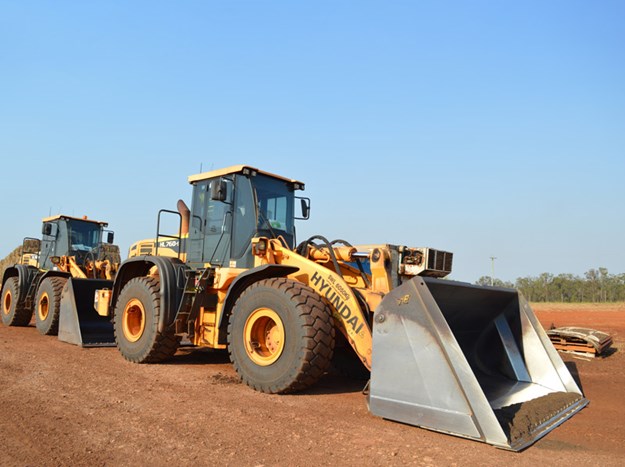 |
|
The Hyundai HL760-9 has the larger 3.3 cubic metre(heaped) bucket size
|
Easy to handle
All of this processing across different sites requires a lot of machinery to ensure it all goes smoothly.
“Aside from the Hyundai wheel loader; we have six tractors, two bailing units, two rakes and two scoops to help us with the sugar cane harvest,” says Durie.
“When I started in 2013, we only had one front end loader at the compost site. When that was in use we did everything else with a forklift with a bucket attachment fixed to it, which took much longer and wasn’t ideal for moving the dirt and filling the hopper.”
Childers currently has five HL740TM-9 and HL760-9 Hyundai wheel loaders provided by Porter Group that are used to unload the hay trucks, “which are almost constantly coming in”, she says.
The ‘TM’ stands for Tool Master, which simply means you can use the quick hitch to have a wide range of different attachments on it, including forks, which are essential for loading and unloading the hay bales onsite.
They’ve been using these machines for the past four to five years and Durie says she can’t fault the machines’ reliability and aftersales service provided to them by the Porter Group Queensland branch over the years.
“Porter Group are very good to deal with and keep up to date,” Durie says.
“Porter Group Brisbane field service technician Jonathan Wetzel had been great to deal with and sends us a reminder when our machines are due for service and they come onsite to do regular maintenance once they’ve done 4-500 hours.”
The Tier 3 HL760-9 and HL740-9 wheel loaders both have a six-cylinder Cummins QSB6.7 engine (160kW) that is electronically controlled for optimal fuel to air ratio, and has three operator modes (Power/Standard/Economy).
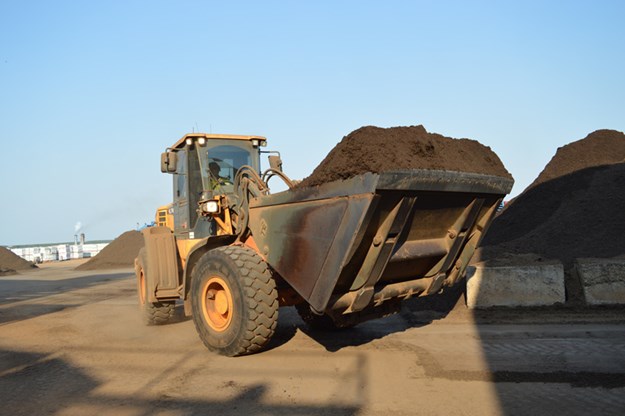 |
Both have an enlarged cabin to improve operator visibility, falling object and rollover protection systems, and a new colour LCD display that makes it easy to check everything from water temperature to engine condition.
“We don’t like to keep the drivers waiting long,” adds Durie, “so we need good modern loaders that are quick and easy to operate.
“This machinery is much better suited to the job, more suitable for our needs and it makes the job a lot quicker and easier for the guys.”
Durie says she is spoilt for good operators who are skilled at operating the machinery.
“Most people in the area grow up on farms or have jobs that require them to operate wheel loaders and the like.
“We are using the HL740TM-9 primarily to unload the hay trucks when they arrive and to stack the shed. Our in-feed operators also use it to feed the hopper, which feeds the product on through to the bagging area before it goes out onto the trucks for distribution.
“We try to train most of our staff so that they are confident in using wheel loaders so they can help out when needed.”
The team at Oreco Group Childers are in the middle of peak sugar cane harvest season and still have a few very busy months ahead, and with Aussies’ obsession with gardening and landscaping products unlikely to wane, the operation continues to grow and provide vital jobs and training for people in the Bundaberg region.
Photography: Randall Johnston


.jpg)